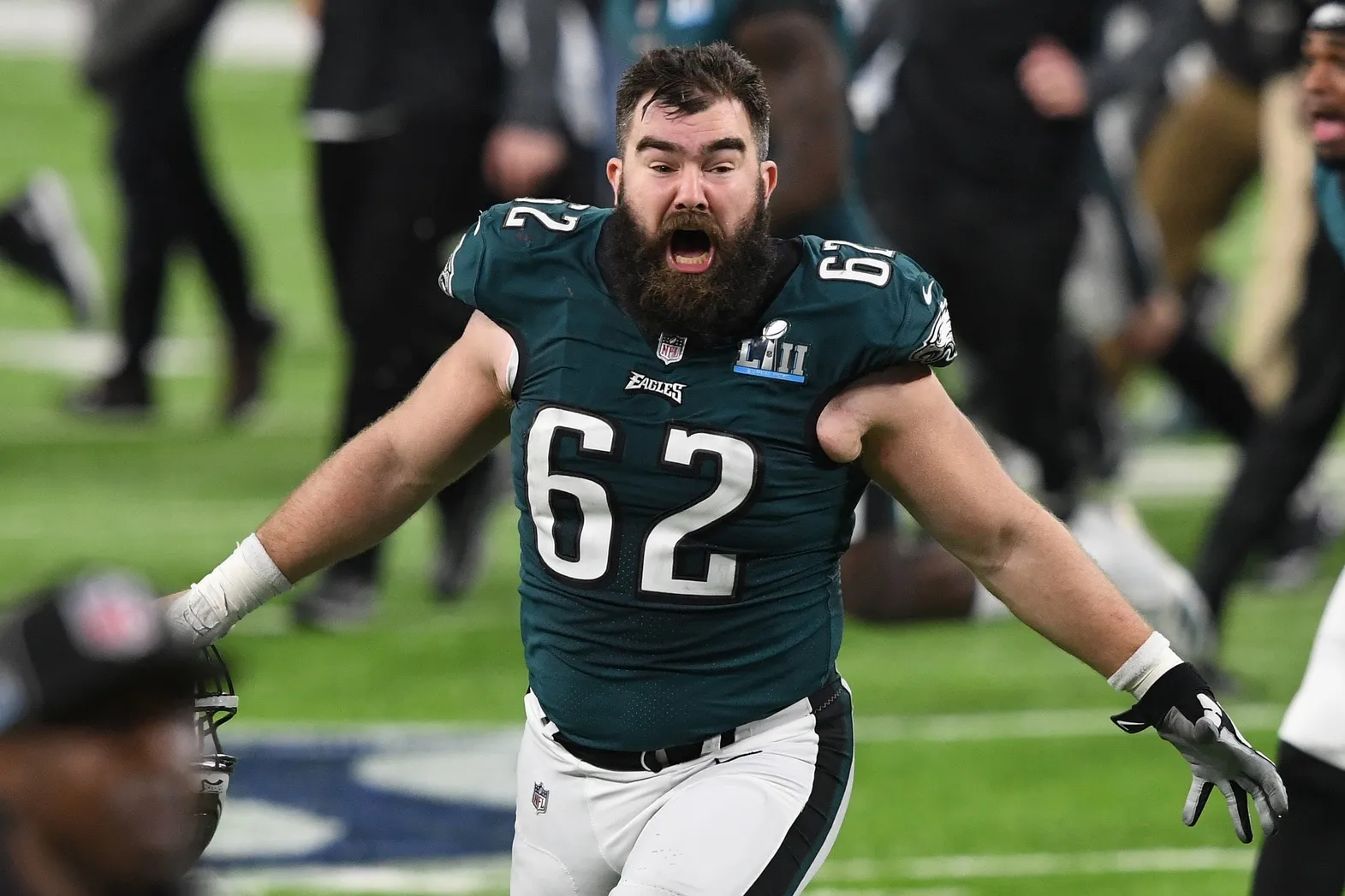Philadelphia Eagles star Jason Kelce has always been known for his passion, both on and off the field, but fans were recently given a look at just how far his protective instincts can go when a video surfaced showing him reacting aggressively toward a fan who allegedly insulted his brother, Travis Kelce, with a homophobic slur. The incident has sparked a heated debate among fans and raised questions about the fine line between sports rivalry and personal attacks.

The viral video captures Jason Kelce confronting a fan who reportedly hurled a slur toward Travis Kelce, a Kansas City Chiefs tight end, during a recent event. In the clip, Jason is seen visibly upset, confronting the fan before forcibly taking and smashing their phone. Since then, additional angles and videos have emerged, providing a fuller view of the tension that built up before the altercation. The moment Jason reacted, it was clear that the insult was something he would not tolerate, with his actions signaling a strong message about the impact of hurtful language.

The incident has divided public opinion on social media, with some fans supporting Jason’s defensive stance, while others question whether such a physical reaction was necessary. Supporters argue that his response underscores his loyalty and dedication to his family, pointing out that sibling bonds can often evoke powerful emotions. “Jason’s reaction just shows how much he cares about his brother. Sometimes, enough is enough,” commented one fan, echoing the sentiments of many others who took to platforms like Twitter to voice their support. Hashtags such as #ProtectYourFamily quickly began trending as fans rallied behind Jason’s actions, praising him for standing up for his brother in a situation that many found deeply offensive.
On the other hand, critics argue that Jason’s actions may have crossed a line, raising concerns about the appropriateness of physical retaliation, especially as a high-profile figure. Some fans have questioned the legality and ethical implications of smashing someone’s phone, while others argue that, regardless of the provocation, violence should never be the response. “When celebrities retaliate physically, it sends a message that violence is an acceptable response. We need our role models to demonstrate restraint, even when provoked,” commented one Twitter user, expressing a view shared by those who believe public figures should set an example in handling conflicts nonviolently.

A significant portion of Jason’s fanbase, however, continues to defend his actions as an understandable response to a deeply offensive slur. For many, the incident is not just about sibling loyalty but also highlights a deeper issue within the sports community – the prevalence of offensive language and personal attacks disguised as “banter.” As one Twitter user pointed out, “Cheer for your team all you want, but personal attacks have no place in sports.” This sentiment has struck a chord with fans who believe that sports rivalries should remain competitive but respectful, without crossing the line into personal insults and discriminatory language.
Jason’s reaction may have been intense, but some argue that it was a necessary stand against the normalization of slurs in sports culture. Many fans and commentators have noted that while athletes are used to taunts and heckling, slurs targeting a player’s identity or family cross an unacceptable line. The outpouring of support for Jason has sparked a broader conversation about respect and inclusivity, with many fans calling for change in the way players and their families are treated by rival supporters. “Sports should bring people together, not tear them down,” commented a fan on Instagram, igniting discussions about setting clear boundaries in sports fandom to foster respect both on and off the field.
As a public figure, Jason Kelce’s actions hold influence, and some critics worry that his aggressive response could set a dangerous precedent for fans who look up to him. In contrast, his supporters argue that defending loved ones sometimes requires taking a stand, regardless of one’s public status. This divide highlights a growing tension between public expectations for celebrities to model restraint and the human need to protect family and defend personal values. With the incident widely shared on social media, the fine line between public and personal lives for athletes has become even blurrier, as fans, rivals, and the media scrutinize every action and reaction.

While opinions on Jason’s actions are mixed, the incident has clearly resonated with those who value respect and accountability in sports culture. Many fans are calling for a shift in how fans engage with players, emphasizing that while rivalry is natural, personal attacks should have no place in sports. “We all have someone we’d defend no matter the cost. Jason just showed us that sometimes, it’s worth it,” remarked one fan, encapsulating the feelings of those who believe that Jason’s actions, however controversial, serve as a reminder that family loyalty can sometimes lead people to cross boundaries.
The incident has sparked an important dialogue on boundaries, respect, and the role of athletes in promoting a more inclusive sports community. As the video continues to circulate, one thing remains certain: Jason Kelce’s powerful message of standing up for family has struck a chord, and whether fans agree or disagree with his reaction, the incident serves as a reminder of the impact that words – and actions – can have on those we care about.